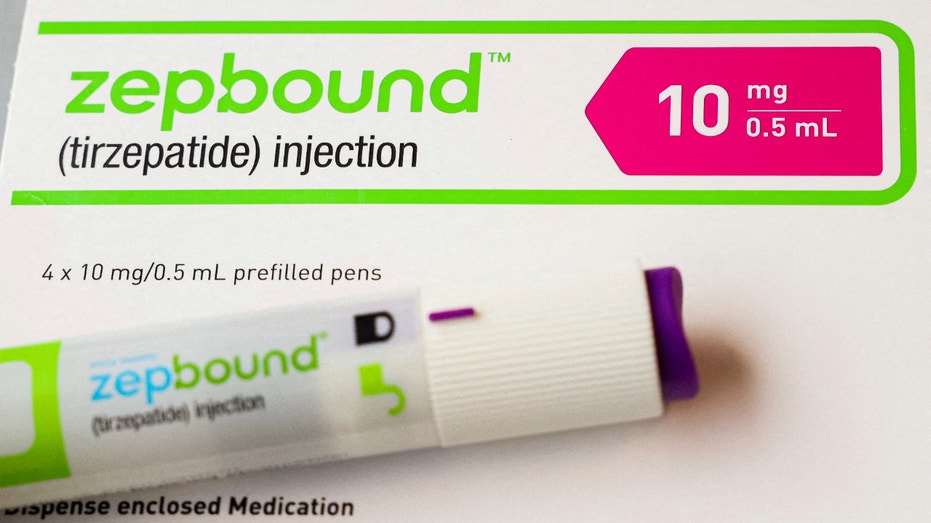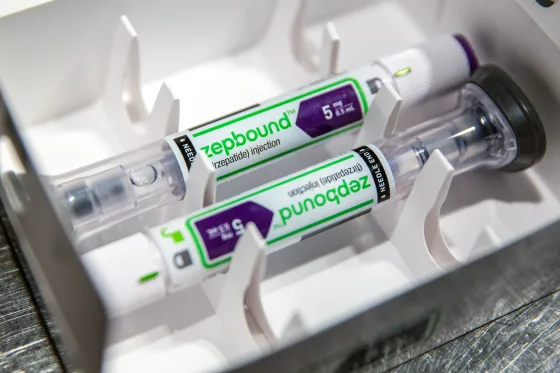Eli Lilly’s Weight Loss Drug: Everything You Need to Know

In a significant development for those battling obesity and weight-related health issues, Eli Lilly has introduced a groundbreaking weight loss drug, Zepbound™ (tirzepatide). Approved by the U.S. Here’s everything you need to know about this new medication.
What is Zepbound?
Zepbound is a once-weekly injectable medication designed to help adults with obesity. Or those who are overweight with weight-related medical problems. It is the first and only approved treatment that activates two incretin hormone receptors: GIP (glucose-dependent insulinotropic polypeptide) and GLP-1 (glucagon-like peptide-1). These hormones play a crucial role in also regulating appetite and food intake, making Zepbound a powerful tool in weight management1.
How Does Zepbound Work?
Zepbound works by mimicking the actions of the GIP and GLP-1 hormones. These hormones help reduce food intake and appetite, and also improve how the body breaks down sugar and fat. By activating these receptors, Zepbound helps patients achieve significant weight loss when used in conjunction with a reduced-calorie diet and also increased physical activity12.

Clinical Trials and Effectiveness
The approval of Zepbound was based on the results from the phase 3 SURMOUNT-1 and SURMOUNT-2 trials. These studies involved over 2,500 adults with obesity or excess weight and weight-related medical problems. The results were impressive:
- At the highest dose (15 mg): Participants lost an average of 48 pounds over 72 weeks.
- Also At the lowest dose (5 mg): Participants lost an average of 34 pounds.
- Placebo group: Participants lost an average of 7 pounds1.
Additionally, one in three patients taking the highest dose of Zepbound lost over 58 pounds, which is also approximately 25% of their body weight1. These results surpass those of other weight loss medications also currently available on the market.
Availability and Cost
Eli Lilly has announced that Zepbound will be available in the U.S. by the end of 2023. However, the cost of the medication is a significant consideration. A month’s supply of Zepbound is priced at approximately $1,0602. This high cost may put the drug out of reach for many people, especially since insurance companies are often reluctant to cover weight loss medications, and Medicare does not cover them by law2.

Potential Side Effects
As with any medication, Zepbound comes with potential side effects. Common side effects observed in clinical trials include nausea, diarrhea, and vomiting. It is important for patients to discuss these potential side effects with their healthcare provider and also weigh the benefits and risks before starting the medication1.
Comparisons to Other Weight Loss Drugs
Zepbound joins a growing list of weight loss medications, including Novo Nordisk’s Ozempic and Wegovy, and Eli Lilly’s own Mounjaro. What sets Zepbound apart is its dual action on both GIP and GLP-1 receptors, which has also shown to result in greater weight loss compared to other medications2. Dr. Christopher McGowan, a gastroenterologist, noted that the weight loss achieved with Zepbound is approaching the levels seen with bariatric surgery, also highlighting its effectiveness2.
The Future of Weight Loss Treatment
The introduction of Zepbound marks a significant advancement in the treatment of obesity and also weight-related health issues. As more people gain access to this medication. It has the potential to improve the quality of life for many individuals struggling with their weight.
Eli Lilly’s Zepbound represents a promising new option for those seeking effective weight loss solutions. With its dual hormone receptor activation and impressive clinical trial results, it also stands out as a powerful tool in the fight against obesity.

